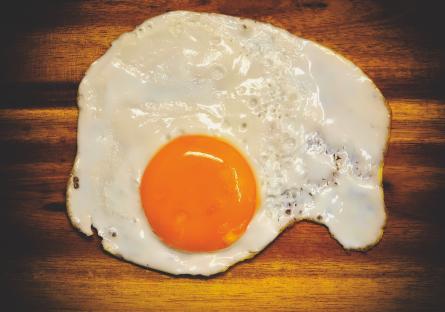This article appears for archival purposes. Any events, programs and/or initiatives mentioned may no longer be applicable.

Fat doesn’t have to be a dirty food. A healthy diet includes fats. The trick is to distinguish between good fats and bad fats, and to make sure that your daily diet is tilted heavily toward the former. Learn how to chew the right kind of fat and you can do wonders for your long-term health.
Why You Need Good Fats in Your Diet
Your body needs macronutrients in order to function properly. Fats are one of these macronutrients (along with proteins, fiber, carbohydrates, and water). Macronutrients are used by the body to maintain essential systems and give you energy. Fats in particular are crucial for providing vital fatty acids that your body can’t make on its own and for absorbing fat-soluble vitamins like K, A, D, and E. Fats also help insulate your body and protect your organs. And much like carbs and protein, fats are an important source of energy for the body.
Beyond their ability to generate energy and aid in vitamin absorption, fats are necessary for maintaining the membrane integrity of every cell in our body. Fats also can affect and accelerate the production of several different hormones for the body, including estrogen, testosterone, and leptin. Leptin is a signaling protein that acts as an appetite suppressant and encourages the body to burn fat.
What Are Good Fats?
Unsaturated fats are good fats. Monounsaturated and polyunsaturated fats are healthy fat types that pose a lower disease risk, possess anti-inflammatory properties, and are overall beneficial for heart health and general well-being. These kinds of fats tend to be found in plant foods: nuts, seeds, and vegetable oils. Some varieties of oily fish (including anchovies, herring, salmon, mackerel, black cod, sardines, and whitefish) are also a strong source of unsaturated fats.
Here’s a few types of food that are - in moderation - healthy sources of unsaturated fats:
- Corn
- Olive oil
- Sunflower oil
- Soy
- Avocados
- Pecans
- Hazelnuts
- Almonds
- Pumpkin seeds
- Walnuts
- Peanut oil
- Canola oil
- Flax seeds
Are Saturated Fats Bad for You?
The short answer is yes AND no. They aren’t as healthy as unsaturated fats, but much healthier than trans fats (more on those later). Saturated fats can have a negative impact on your health if not consumed in moderation. A lot of foods you probably enjoy fall under the saturated fats umbrella, so trying to cut them out entirely is unrealistic and also unhealthy (as many saturated fats can also contain essential micronutrients and vitamins that you need).
Saturated fats are commonly found in animal-based food: beef, pork, poultry, and full-fat dairy products. They are also known as “solid fats” because they are typically solid at room temperature, whereas unsaturated fats tend to be in liquid form under similar conditions. They also tend to be much higher in cholesterol than unsaturated fats. The American Heart Association recommends getting 5 percent to 6 percent of your daily caloric intake from saturated fats.
Some examples of food that contain saturated fats include:
- Beef
- Butter
- Cheese
- Ice cream
- Palm oil
- Lamb
- Cream
- Coconut
- Baked and fried foods
How Bad Are Trans Fats?
Out of all the types of fat you can eat, you should endeavor to eat less trans fats than the others. That’s because trans fats can raise your bad cholesterol levels while ALSO lowering your good cholesterol levels. Eating trans fats can increase your risk of stroke and heart disease; it’s also been associated with a higher risk of developing type 2 diabetes.
There are two types of trans fats: naturally occurring and artificial trans fats. The former are produced in the guts of some animals and can be found in milk and other meat products, while the artificial variety are created in an industrial process that mixes hydrogen into liquid vegetable oils to solidify them as “partially hydrogenated oils.” These artificial trans fats are so unhealthy that the U.S. Food and Drug Administration has prohibited food manufacturers from adding them as a major source of fats to foods and beverages.
Some types of food with trans fats include:
- Refried dough
- Microwave popcorn
- Frozen pizza
- Non-dairy coffee creamer
- Margarine
- Fried foods (french fries, doughnuts, and fried chicken)
- Vegetable shortening
- Premade cake frosting
- Commercial pie crusts
- Cookie dough
- Peanut butter
Article by Austin Brietta
Want more wellness tips? Check out these stories: